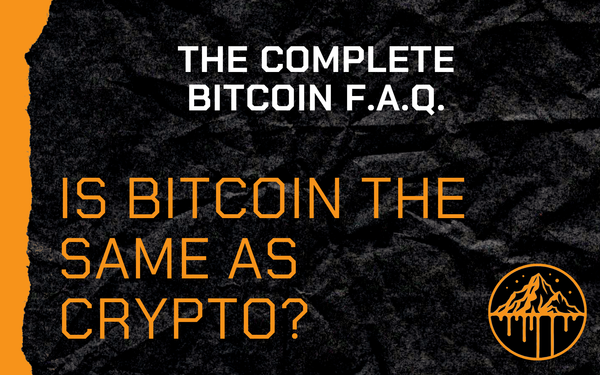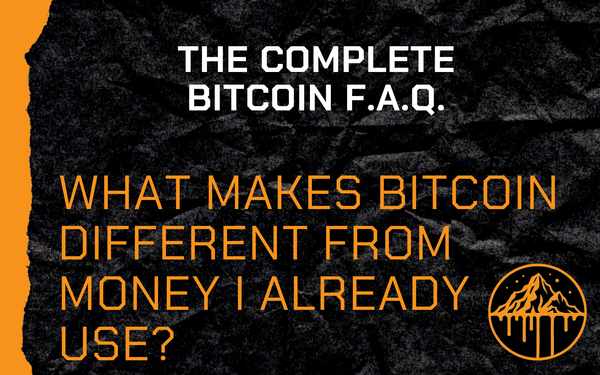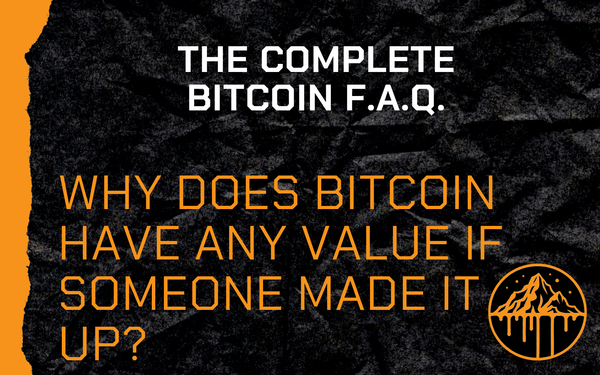Loss Aversion: Why the Fear of Losing Keeps You Trapped
Loss Aversion is a cognitive bias where people fear losing something more than they value gaining something of equal or greater worth. Studies show that the pain of losing $100 feels twice as bad as the pleasure of gaining $100.

The Psychological Trap: Why People Fear Loss More Than They Value Gain
You hear it all the time:
- “Bitcoin is too risky—I’d rather keep my money in the bank.”
- “I know inflation is bad, but at least my dollars feel safe.”
- “I don’t want to lose money, so I’ll just stay where I am.”
Most people don’t realize they’re already losing.
Loss Aversion is a cognitive bias where people fear losing something more than they value gaining something of equal or greater worth. Studies show that the pain of losing $100 feels twice as bad as the pleasure of gaining $100.
What this looks like in real life: FOMO—Fear of Missing Out. Every time I buy tickets to see one of my favorite bands from the 80s or 90s, I’m driven by Loss Aversion. I know they’re old and will sound like shit (except for Nine Inch Nails), but I don’t want to miss out.
The result?
- People stay in broken systems longer than they should.
- They cling to declining investments just to avoid admitting they were wrong.
- They let fear of the unknown stop them from making better financial decisions.
They don’t just fear making a bad move—they fear any move at all.
How the Brain Works: The Psychology of Loss Aversion
Loss Aversion isn’t just about money—it’s hardwired into our survival instincts.
- In early human history, losing food or shelter meant death. So, our ancestors prioritized avoiding loss over chasing new opportunities.
- Fear of regret paralyzes decision-making. We worry more about “What if I lose?” than “What if I win?”
- People default to inaction because taking no action feels safer than making a move, even when it’s clearly the right choice.
Why Loss Aversion Keeps You Stuck:
- “If I switch to Bitcoin and it crashes, I’ll feel stupid.”
- “If I take my money out of the bank and something goes wrong, I’ll regret it.”
- “If I try something new and fail, it’s my fault—so I’ll just stick with what I know.”
Even when people see the warning signs, they choose inaction over perceived risk.
How Loss Aversion Affects Investing & Finance
Loss Aversion is why people:
- Hold onto failing investments too long. (Sunk Cost Fallacy in action.)
- Avoid volatile assets, even if the long-term reward is clear.
- Leave money in savings accounts that are guaranteed to lose value.
Examples of Loss Aversion in Finance:
- “Bitcoin is too risky—I’d rather keep my savings in the bank.” (Even though fiat is guaranteed to lose purchasing power.)
- “I don’t want to sell this stock at a loss—I’ll just wait for it to rebound.” (Even if it never does.)
- “I can’t move my money out of my 401(k)—I’ve been contributing for years.” (Even if better options exist.)
Loss Aversion traps people in bad financial decisions by making them more afraid of short-term pain than long-term security.
Bitcoin Case Study: How Loss Aversion Delays Adoption
People don’t avoid Bitcoin because they’ve done deep research.
They avoid it because they fear the unknown more than the guaranteed loss of dollars.
Common Loss Aversion Arguments Against Bitcoin:
- “What if I buy and it crashes?” (What if you don’t buy and fiat collapses?)
- “What if Bitcoin never takes off?” (What if fiat is already failing?)
- “Bitcoin is too volatile.” (Fiat is just as volatile—it just trends in one direction: down.)
Why This Fear Is Irrational:
- Bitcoin has recovered from every crash.
- Every fiat currency in history has eventually failed.
- Holding onto a melting asset (fiat) is a guaranteed loss—whereas Bitcoin is an asymmetric bet on the future.
What Happens When People Overcome Loss Aversion?
- They stop focusing on short-term fear and start looking at long-term reality.
- They realize that staying in fiat is a guaranteed loss, while Bitcoin offers a path to preservation.
- They shift from protecting what they have to positioning themselves for what’s coming.
How to Recognize & Overcome Loss Aversion
Want to escape the Loss Aversion trap? Start by reframing the risk.
Instead of asking “What if Bitcoin fails?”, ask “What if fiat fails?”
- One of these has failed every time in history. The other has never been hacked, altered, or inflated.
Look at the cost of inaction.
- Doing nothing is still a choice—and it’s often the worst one.
Recognize that fear distorts decision-making.
- The more afraid you are of loss, the more likely you are to make irrational choices.
Think in decades, not days.
- Bitcoin’s short-term volatility is noise. Long-term adoption is the real signal.
Final Thought: The Real Risk Is Doing Nothing
Most people don’t lose because they made the wrong move. They lose because they never moved at all.
Loss Aversion keeps people trapped in a system that slowly takes everything from them.
The question isn’t if you’ll lose wealth—it’s whether you’ll notice before it’s gone.
Wealth melts. How much you got left?
Disclaimer: Melting Wealth is not financial advice. It’s a wake-up call. Think for yourself, question the system, and take responsibility for your decisions. Your money, your risk, your move.





